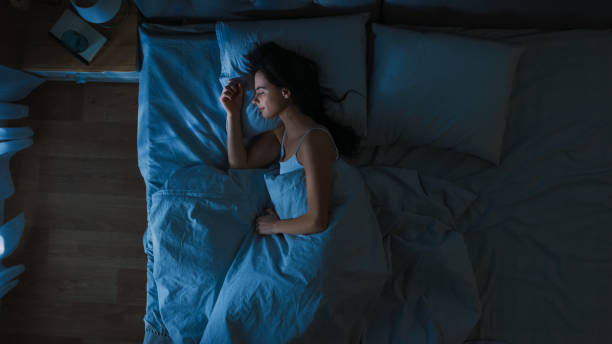Does sleep help high blood pressure?
Sleeping poorly can increase your blood pressure, but getting a great night's rest can reduce your blood pressure. Making a few changes to your sleeping habits can reduce hypertension and lower your risk of heart disease.
How much does lack of sleep raise blood pressure?
Not getting enough deep sleep may raise your blood pressure. A new study shows men who got the least deep sleep were 80% more likely to develop high blood pressure than those who got the most.
A new study finds teenagers who do not get adequate amounts of sleep may be at risk for increased health problems like obesity and high blood pressure.
According to Study
According to research presented at ESC Congress 2022, adolescents who sleep less than eight hours a night are more likely to be at risk for these conditions. The study found that at 12 years of age, only 34 percent of participants slept at least eight hours a night. The percentage dropped to 23 percent and 19 percent at 14 and 16 years, respectively.
The prevalence of overweight/obesity was 27 percent, 24 percent, and 21 percent at 12, 14, and 16 years old, respectively.
Children who got less than 7 hours of sleep were 21% more likely to have obesity at age 12 and 72% more likely age age 14, compared to children who got over 8 hours of sleep.
“Sleep should be regarded as a pillar of comprehensive healthcare, complementing nutrition and physical activity on a daily basis in order to maintain optimal health,” said Dr. Louis Morledge, an internist at Lenox Hill Hospital in New York. “Americans young and old would benefit from a good night’s sleep in addition to eating a healthy diet and regularly engaging in physical activity for overall health.”
What is the connection between sleep and health issues like obesity and high blood pressure?
Missing sleep can lead to an imbalance in hormones that regulate appetite and metabolism. Studies have shown that sleep restriction is associated with increased hunger and appetite, particularly for foods that are high in calories.
“Being sleep deprived makes you feel like you’re hungry, and makes you crave and reach for unhealthy foods,” said Heather Turgeon and Julie Wright, psychotherapists, authors, and sleep experts who recently published the book Generation Sleepless. “Sleep loss can also cause chronic inflammation because the brain and body are left in a continual state of stress. That has a direct impact on immediate and long-term health.”
Why don’t teens get enough sleep?
The reasons why teenagers do not get enough sleep is lengthy, especially today in a world where digital content is constant.
“Many of the factors that pose problems for securing a good night’s sleep can be linked to the simple notion of ‘too much,'” said Morledge. “Overstimulation too late in the evening, use of tech gadgets with excessive light exposure, ingestion of caffeine, physical space issues, can impede sleep. Removing some, if not all of these barriers, and placing a higher priority on sleep is essential for a healthier outlook.”
In their book, Turgeon and Wright lay out a perfect storm of factors:
“The biological clock shifts later in adolescence, making it easier to stay awake late. Then excessive high school homework and activities push bedtime much later. The wrecking ball is technology, which makes it harder to focus and get work done, and then when it’s finally over they just want to stay up and engage.”
They add, “Technology companies are all too happy to prey on the teen’s desire for connection, so smartphones are impossible to put down. The final factor impacting sleep is too-early high school start times.”
That last point is an important one, and one that can be changed across the nation to impact the sleep habits of students.
In 2019 California legislators passed a law that required public high schools to begin no earlier than 8:30 a.m., and no earlier than 8 a.m. for middle school. The law went into effect on July 1, 2022.
“This has been a long time coming, because the research on later start times has been
clear and strong for decades,” said Turgeon and Wright. “Teens have naturally delayed biological clocks, so they want to fall asleep and wake up later. Making them wake up at 6 a.m. was always a bad idea and has almost been a form of torture for all these years, because 6 a.m. for a teen is 4 a.m. for an adult.”
What are some healthy sleep habits that teens can start to incorporate?
There are certain lifestyle changes that teens can make in order to help promote healthy sleep habits. Ideally refraining from caffeine would be a good first step, as well as putting away technology like smart phones and tablets an hour before bed.
“We coach teens to focus on wake-up time first, rather than bedtime,” said Turgeon and Wright. “You can’t force yourself to go to bed, but you can force yourself to wake up.” On weekends, they suggest making yourself wake up within one to two hours of your school day wakeup time. This makes it easier to fall asleep at night.
Getting outside for five to 10 minutes of outdoor time is helpful, too. They add, “This powerful sun signal is what really lets the brain know it’s time to start the day, which makes sleepiness chemicals rise at the right time of night.”










